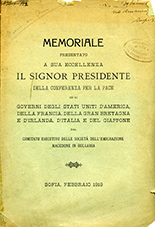
We kindly inform you that, as long as the subject affiliation of our 300.000+ articles is in progress, you might get unsufficient or no results on your third level or second level search. In this case, please broaden your search criteria.


U „građanskom ratu sećanja” ovih dana je na nov način oživljen Sarajevski atentat. Okvir je ostao tanato-politički, ali se više ne eksploatiše samožrtvovanje Principa nego smrt Ferdinanda. Ko je odgovoran za to što su mladobosanci od tiranoubica postali teroristi? Svi oni u regionu koji strepe od jugoslovenstva i svi oni iz okruženja koji žele da rasterete vlastite nacije od imperijalističke odgovornosti za klanicu Prvog svetskog rata. Da li će oni uveriti javnost da su atentatori bili teroristi? Verovatno hoće zato što Princip danas nema valjanog advokata. Srušene su one strukture koje su Principa iznedrile i koje su ga docnije opravdano heroizovale. Država Jugoslavija je Principu s razlogom dizala spomenike i po njemu imenovala ulice. Danas nikakva kohorta blistavih istoričara ne može odbraniti Principa zato što nema južnoslovenske države kao ostvarenja mutnog ideala koji je vodio mladobosance. A što se rečena država danas više shvata kao iluzija ili kao tamnica to su veće šanse da Princip o neslavnom jubileju bude stigmatizovan kao terorista.
More...
Iz zbornika „Svakodnevica i društveni odgovori na epidemijske krize 1914-2020“, nastalog u okviru naučno-istraživačkog projekta „Čovek i društvo u vremenu krize“, urednik zbornika Milan Ristović, izdavač Filozofski fakultet Univerziteta u Beogradu 2021. U članku se prikazuje život Beograđana krajem 1918. U danima slavlja zbog oslobođenja, stvaranja Jugoslavije i povratka u normalni život, stanovnike je kosio Španski grip. U članku se prikazuju razlozi zbog kojih je pandemija prošla gotovo neopaženo, uprkos visokoj smrtnosti.
More...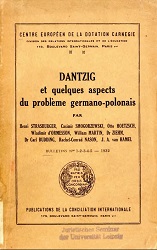

It was with great interest that I read, in the July issue of this journal, the article concerning "the conditions of a German-Polish understanding" by Casimir Smogorzewski, including the works: „Poalnd restored and the "Corridor", are well known to me. He, no doubt, too, starts from the idea that after the adoption of the Young Plan and the financial regulations, also valid for Poland, and after the evacuation of the Rhine territories, a new period of world politics begins, and that it is time, therefore, to discuss at least the Eastern problems. This is how I myself, in the January issue of the „Europäische Gespräche“, in which the editor of this review, A. Mendelssohn-Bartholdy, and Georg Cleinow have studied very seriously the question of a German-Polish settlement. Smogorzewski is wrong when he presents the question of the "corridor" as if Germany were the only one to complain about it and that "none of the other signatories of the Treaty of Versailles were of our opinion". (by the author)
More...
Two political writers, perfectly qualified to expose and to defend the points of view of their countries, Mr. Casimir Smogorzewski and Mr. Professor Hoetzsch, former member of the Reichstag, have, in turn, treated in this review, and with an entire frankness, the important question of German-Polish relations, considered in their details and as a whole. To tell the truth, their theses collide on more than one point; and especially when they approach, in their courteous discussion, the subject of the “Dantzig Corridor”, one measures the depth of the abyss which separates them. However, both Mr. Casimir Smogorzewski and Professor Hoetzsch insist, in the conclusions of their interesting articles, on the need for Germany and Poland to maintain good relations and they underline the fact that the state of these relations determines, to a large extent, the very situation of Europe. It is from the angle of this axiom that we will place ourselves to examine here, in all objectivity, what must be thought of at present of the controversy of which the former province of Pomerelia — now commonly called the "corridor" — is the object.
More...
I do not need, at the beginning, to underline the importance of the problem which I am going to speak about. You all know like me that at Locarno, Germany formally recognized its western borders; the question of Alsace-Lorraine no longer exists either legally or even morally; the real center of international conflicting interests is the question of Germany's eastern borders; because if Germany has undertaken not to resort to force to modify them, it has not refrained from pursuing their modification by other means. This statement is of considerable importance and I believe that the press sometimes underestimates its importance. // But the fact that the Germans did not rule out the application of peaceful means, and in particular of article 19 of the Covenant, with a view to obtaining the modification of their eastern frontiers, has, for the international situation, serious consequences. disadvantages. The main thing is that, psychologically, Germany tends to demonstrate that the current situation is untenable, that the Treaties are "inapplicable", according to the terms of article 19 of the pact, and for this reason to make certain situations perhaps more difficult than they would naturally be.
More...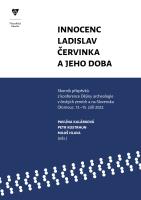
In March 1902, a mammoth skeleton was discovered in Beši (southwestern Slovakia). The discovery of the prehistoric animal immediately attracted the attention of local authorities and central institutions in Budapest. However, as it turned out, due to the lack of interest of the competent persons, the rare find remained almost untouched in its original place for many months. This situation was exploited by the Slovak Catholic priest Andrej Kmet'a, who dug up the mammoth skeleton and transferred it to his parish in Prenčov, where he preserved the damaged bones with the expert help of Jan Knies. However, the few months during which the mammoth rested in the rectory were also a period of persistent struggle of the Hungarian elites to obtain the precious find. Kmet, firm in his resolve, had the mammoth transported after several vicissitudes to the museum in Turčianske Sv. Martin - one of the few cultural institutions on which the Slovaks in the multinational state could rely in this period. Against the background of the fate of the Beše find, one can thus vividly trace not only the conditions of the cultural life of Slovaks at the beginning of the 20th century, but also the fascinating story of Andrej Kmet's determination in the struggle for the cultural upliftment of his own nation.
More...
The paper deals with the beginnings of the archaeological investigation of the Hradisko site in the village of Jánovce in the Poprad district at the end of the 19th and the beginning of the 20th century. It is an unforested and dominant in the landscape hill located south of the Machalovce district. The locality is known to the professional public for a long time as an important fortified production and trade centre of the Púchov culture from the Latin and Roman periods. The hill and especially the area below hill and the hill in general have been inhabited since prehistoric times. The importance and research potential of the site was realised by researchers as early as the end of the 19th century. Despite this, the site has never been systematically investigated and has only been evaluated on the basis of archaeological finds obtained during surface surveys.
More...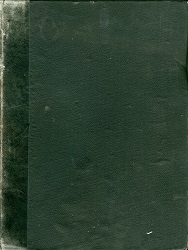
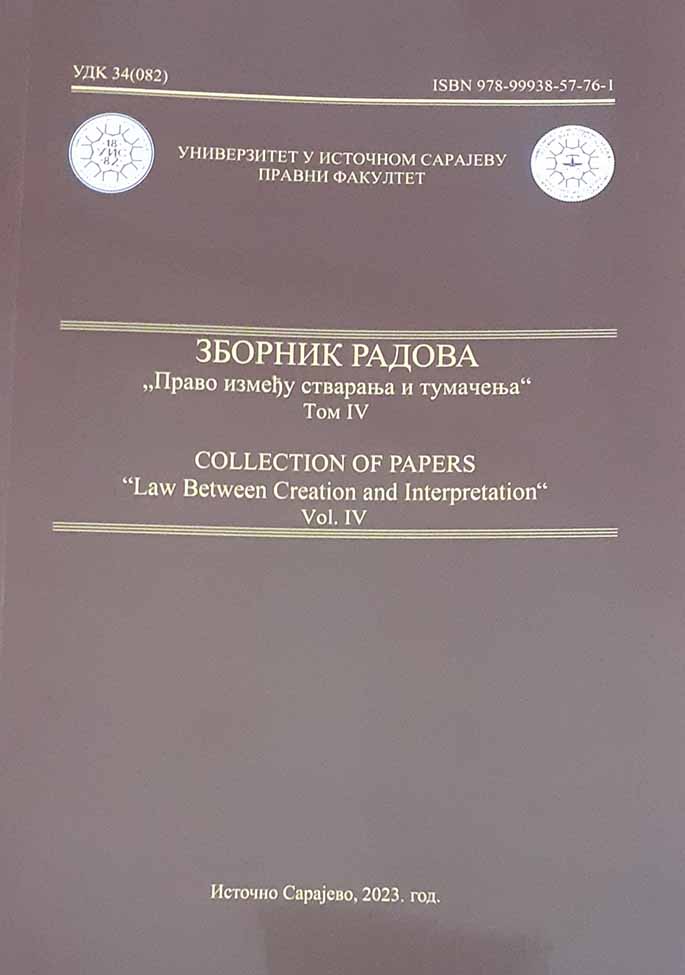
The end of the nine-year struggle for religious and educational autonomy did not appease Serbian libertarian spirit. On the contrary. Expanding political interest beyond the church and school frameworks, the younger intelligentsia stands up against the opportunistic attitude of the old Serbian leaders, who for the sake of their own interests had a more moderate attitude, and presents a different view of the continuation of the national struggle. As a result, several groups were formed that represented different political positions, each of them having its own newspaper. By adopting the so-called The "Sarajevo Resolutions" laid the foundations for the establishment of the first Serbian political organization that will fight for the country's autonomy, civil rights and the adoption of a constitution.
More...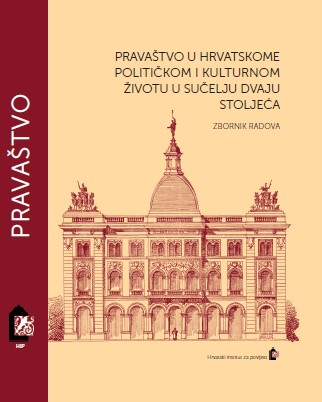
Ties between Ivo Pilar and ‘Rightism’ existed at certain historical moments, but from the point of view of his overall ideological profile they were thin. It is hard to establish whether or not he can formally be considered an adherent of ‘Rightism,’ other than that we encounter his name among indirect secondary sources from 1917 and 1918, primarily in certain newspaper articles, where his belonging to the Party of Right is mentioned. As a member of the Croatian National Union he was probably indirectly attached to the Party of Right, that is, towards the end of the First World War, as a member of the circle around the Hrvatski Dnevnik or Stadler’s political group. In any case, we lack the documentary evidence to confirm a formal answer to the question stated in the title, but it is my belief that we should not include Pilar among the ‘Rightists,’ rather we should see him as a prominent individual who during this time period benefitted from his alliance with the ‘Rightists’ due to their complimentary views on the solution to crucial political issues. I am inclined to conclude that Pilar was a rather prolific and influential writer, undoubtedly oriented in favour of Croatian state right, to whom it was clear that despite his personal intellectual abilities he could not independently have a strong influence on the public scene without relying on some party-political organization. Taking into account his familial circumstances and political formation, we can conclude that he was not linked to ‘Rightism.’ The foundation for his evolution was Bosnia and Hercegovina, in which Pilar, like other Croatian politicians from this region, progressively sought out territory on which to cooperate with other prominent parties, and in the first instance this meant from the territory of Croatia-Slavonia, which was the centre of Croatian political life. His assessment of the consequences of the collapse of Austria-Hungary and the predominance of the Serbian factor in the coming Yugoslav formation had a vital impact on his future decisions. In this sense, during this already mature phase of life he leaned toward ‘Rightism’ as the only basis for a wider national movement and an active expression of the desire for independence. ‘Rightism’ was for the most part a natural umbrella for the work of promoting the attitude which made a contribution to overcoming the Dualistic division of the Monarchy, but at the same time an even more pronounced and political basis for opposing certain other ideologies, which strove toward the creation of an integral Yugoslavian state community on the basis of the idea of national oneness. In this direction work toward a combination with ‘Rightism’ took place, but also other Croatian groups and individuals from political life, including the representatives of other South Slav lands, in order to preserve the Monarchy and strengthen its position in South East Europe. Here too Pilar was only one of the protagonists who faithfully believed in the common interests of the Croatian people and the Austro-Hungarian Monarchy, and on the other hand he feared Croatia’s entry into a narrow union with Serbia. It cannot be said that he was unaware of the negative aspects of the Dualist regime because he wrote about these.
More...
„Mag die Richtigstellung der Schlussrechnungen diese Summe nach der einen oder anderen Richtung hin alteriren, an der Thatsache, dass die Quote von 1.9.367.701 % richtig und nach dem Gesetze berechnet ist und dass hiernach Kroatien aufh ört ein „von Ungarn ausgehaltenes Land“ zu sein, vermag sie nichts zu ändern.
More...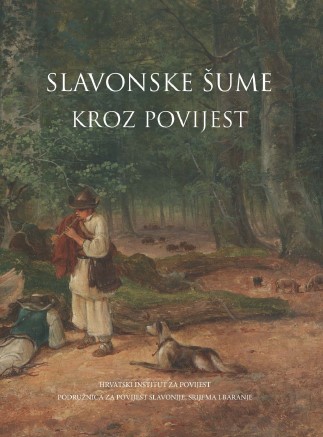
In the territory of the Military Frontier, the forests were the major natural resource. The Brod Estate Community (BIO) was in charge of the forests in the territory of the former Brod Regiment after it was abolished, to be exact, in 1873. The large land complexes of high quality forests provided great revenue. The management of the Brod Estate Community was regulated by the Law of Estate Communities in Croatia and the Slavonian Military Frontier from 1873. Representatives and the Economic Committee were the main governing bodies of the Brod Estate Community. Their working protocols provide the numerous challenges to sustainable management with which the bodies were confronted. In the forests of the Brod Estate Community timber thefts were frequent. Aside from that, many buyers of timber owed small or large amounts of money. It was also noticeable that some municipalities did not return borrowed money although the Brod Estate Community provided loans under very favourable conditions. Ultimately, the Brod Estate Community faced problems of fraud by the administrators using their official positions for illegal acts. This work endeavours to determine the extent of attempts to cause financial damage to the Brod Estate Community and how the members of the board tried to prevent these attempts.
More...
The Oak Extract Company Limited from Županja was one of the first, as well as one of the most significant industrial enterprises in Slavonia founded on foreign capital. The factory was opened in the early 1880s, being the first tannin factory in the Croatian lands. Facing different ups and downs, like changes in the ownership structure, it was active until 1930s. However, the factory lived through its golden age at the end of the 19th century. In the beginning, this foreign investment faced negative comments and assessments, mostly made by political opposition. Nevertheless, multiple positive effects related to this factory became evident soon enough. Because of that, initial negative preconceptions gradually gave place to the more favorable impressions towards the English-Canadian capital in Slavonia. Foundation of the factory presents an important point in the history of Županja and the surrounding area for its employment of 400 people in 1900. Moreover, additional profit-making opportunities emerged for the local population, such as kirijašenje (extracting logs out of forests).
More...
Slavonian forest resources attracted foreign investors who opened a certain number of industrial enterprises modernising the local economy on the basis of the capitalist paradigm in the late 19th and early 20th century. At the beginning, this wood-based industry was developing by employing seasonal workers, relatively uninterested in the organized labour movement. However, with the growing mass-production, population migrations and urbanization, more and more strikes occurred like the one in Osijek’s factory Povischil and Kaiser in 1905 which happened to be the first general strike in the Croatian history. In the following year, in 1906, Gutmann’s workers organized the strike in Belišće, as well as saw-mill workers from Brod na Savi who led the general strike in 1907. While authorities and entrepreneurs, owners of resources and the means of production, saw these actions as intolerable subversion, in the attempt to improve their wages, working hours, housing conditions and other issues workers’ experience ranged from Marxist radicalization to social-democratic reformism. In other words, aim of the article in question is to elaborate the number of conflicting perspectives drawn from three different strikes between 1905 and 1907.
More...
The financial reports and the budget of the Sabor (Parliamentary) Committee for the Fruška gora monasteries during 1906-1907 indicated that there were numerous problems concerning the financial resources required for the preservation of these significant monuments of Serbian culture and spirituality. Some of the monasteries were not capable of sustaining their fraternities or of bearing the financial burden of their immovable properties. When this is joined with the poor state of the finances of the Parliamentary Committee due to constant conflicts between radicals and conservatives and the irresponsible fiscal policy of many officials of the metropolis, it is evident that the Fruška gora monasteries had to survive serious economic crises year by year.
More...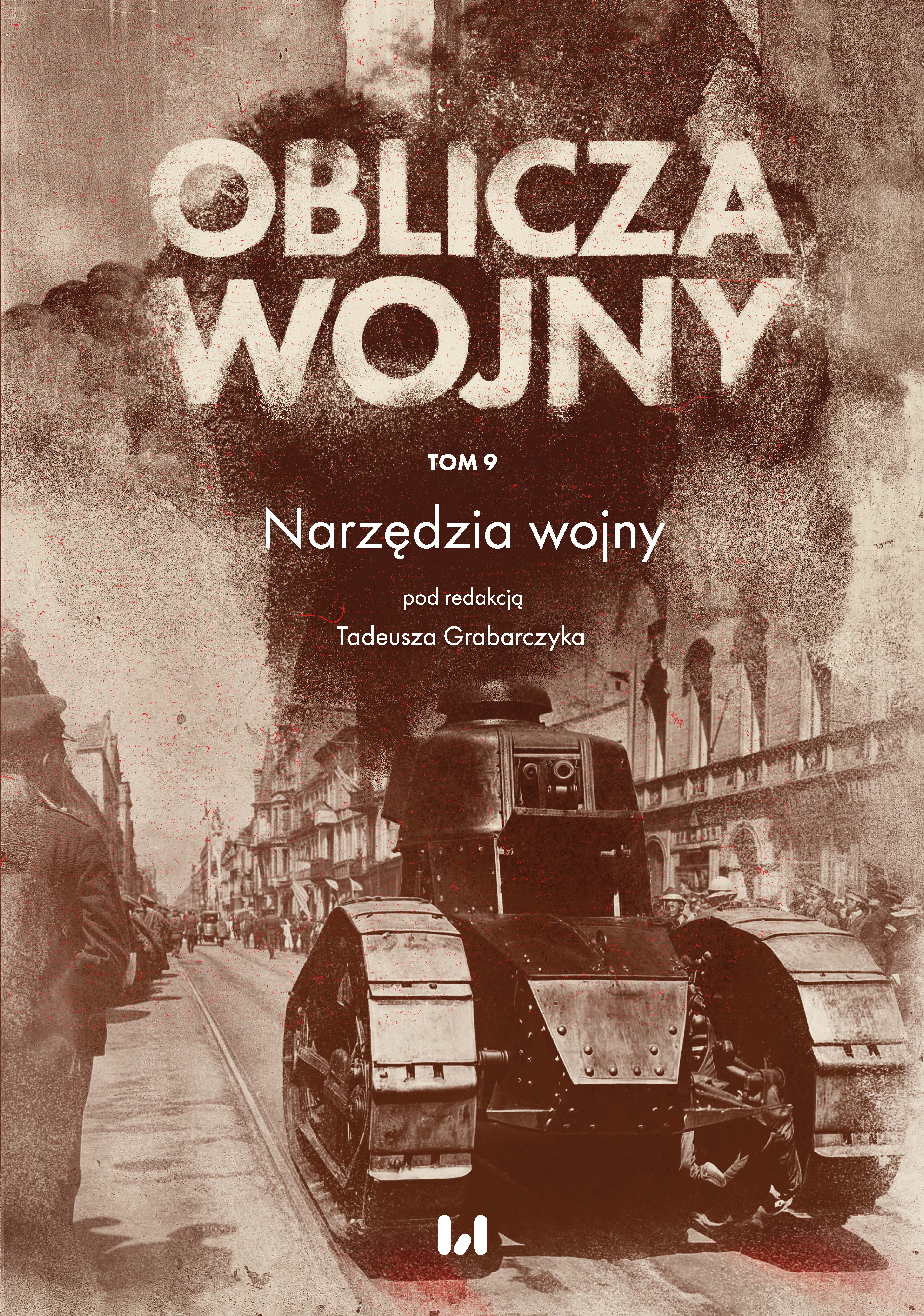
Anti-German war propaganda in the Russian part of partitioned Poland was based on the very strong anti-German resentments prevailing among the Polish subjects of the Tsar Nicolai II long before 1914. Among other things, man accused the Germans of being responsible for the outbreak of war and committing war crimes against civilians for example in Kalisz. Such social attitudes were mostly a reaction to the Germanization policy consistently practiced in the Prussian part of partition Poland in the decades preceding the outbreak of the Great War. Resentment or even hostility toward Germany intensified during the revolutions of 1905–907, when Polish public opinion accused the Germans of blocking the Tsar's restoration of the autonomy of the Kingdom of Poland and readiness to intervene militarily to obstruct that. Resentment against the Germans was cumulative in the person of Kaiser Wilhelm II, who bore personal responsibility for the policy of denationalization of his Polish subjects. This made itself known, among other things, during the jubilee of the 25th anniversary of the reign of the German monarch in June 1913. Anti-German sentiment in Polish society was also fueled by the strongest Polish political grouping, namely National Democracy. The Russian authorities often tolerated anti-German sentiment among Poles, which was intended to divert attention of Poles from the policy of Russification practiced in the Russian part of partitioned Poland and allowed the channeling of Polish discontent in a relatively safe way for the authorities.
More...
The 1st Tank Regiment was the very first military unit in the whole history of the Polish army, which was full fitted out with tanks. Created on March 15, 1919 by order of the Command of the Polish Army in France, it went to the independent Poland in June of the same year. Equipped with 120 modern tanks, the Renault FT took an active part in the war with Bolshevik Russia. A little-known card in his history are relations with Łódź, where he was stationed for the first two years. Łódź was the place from the fighting vehicles went to the fronts of the war, here they also went from the battlefields for renovation. In Łódź, armoured soldiers quartered, continued their military training and participated in language courses. Some aspects of the regiment’s relationship with the city were reflected in the local press of the time: „Straż Polska”, „Kurier Łódzki”, „Głos Polski”, „Rozwój”, „Praca”. News, some small ads and press announcements supplemented with individual archives from the resources of the State Archive in Łódź such as iconography, files and ephemeral prints allowed to broaden knowledge about some important aspects connected with: the reviews of tanks organized for the local population, among whom they aroused great interest; participation of the regiment in parades accompanying state and military ceremonies or church devotions; minor incidents and accidents in the city involving soldiers and drivers; a volunteer enlistment to the unit conducted among the inhabitants of Łódź in the summer of 1920 and the ceremony of decoration of officers and privates from the 1st Tank Regiment Kris Virtuti Militari in June 1921.
More...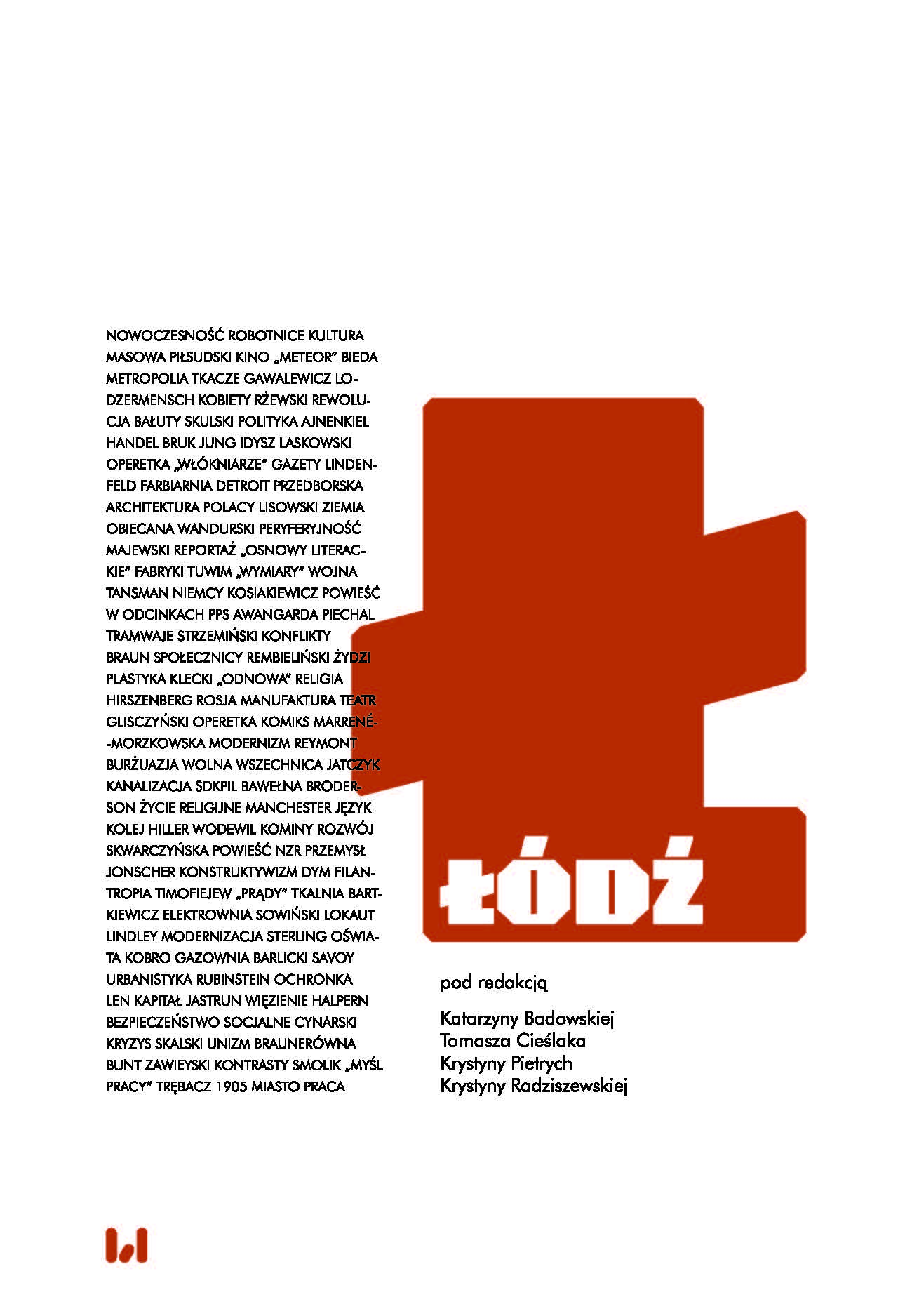
This article discusses the history of the German Thalia theatre in Łódź and its place in the wider context of the operetta industry of the early 20th century. The author draws attention to the challenges the Thalia had to face as a theatre operating in the provinces, which wanted to play the same modern repertoire as in European metropolises. It was difficult to fulfil these ambitions, among other things, due to falling attendance and the problem of keeping titles in the repertoire for longer and, consequently, financial difficulties. The theatre was also not helped by the scepticism of reviewers, who saw the operettas fashionable on European stages only as a temporary sensation. Meanwhile, operettas not only offered an escape from reality, but also subtly commented on social and political problems, making them a vehicle for the cultural politics of the era. Despite its commercial nature, the modern operetta had a deeper impact on the formation of societies and was an expression of mass identity. In this sense, it may have influenced the development of modern societies, including that of Lodz, which, on the eve of the First World War, tried to emulate the lifestyle of Western metropolises.
More...